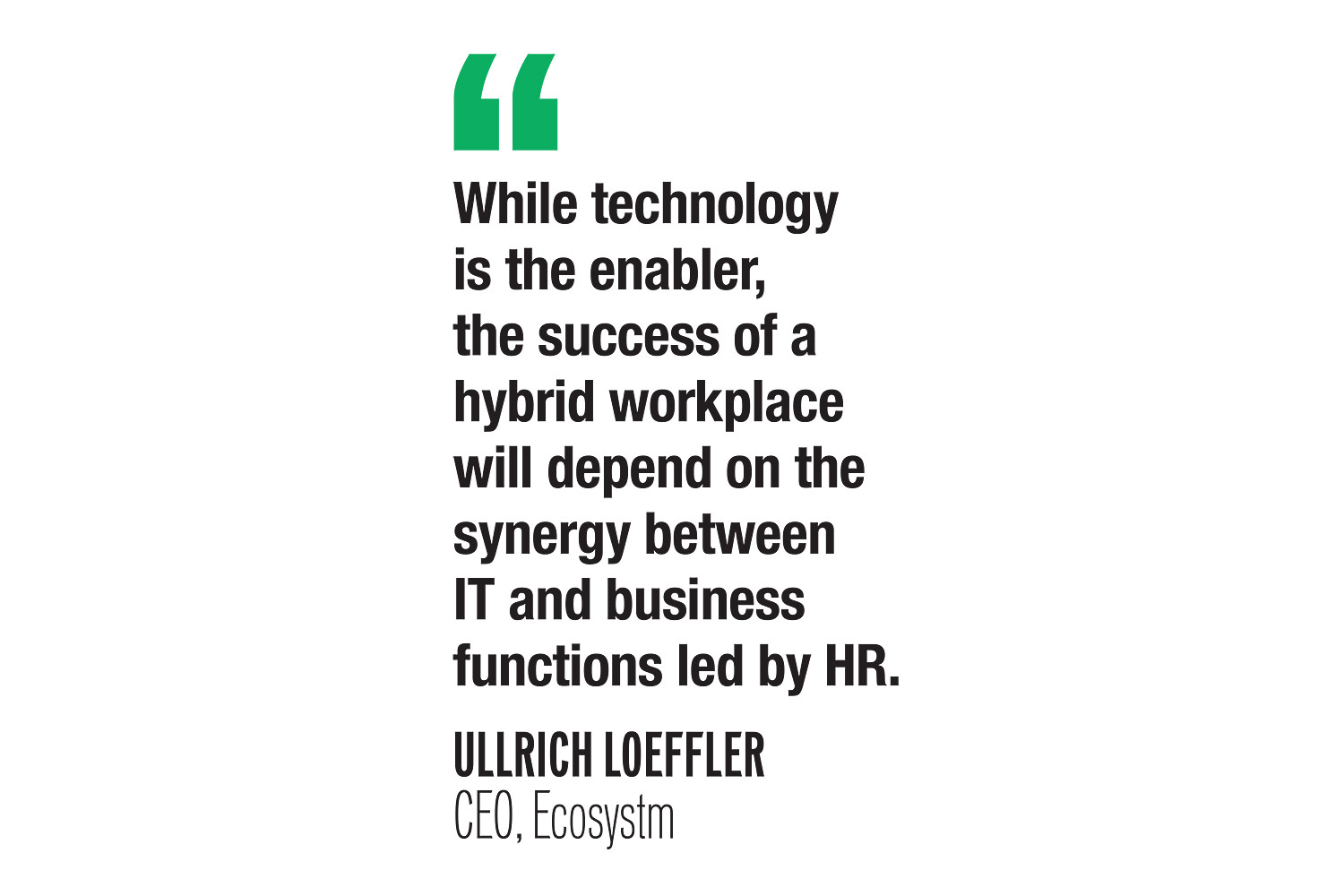
Nearly three-quarters of knowledge workers in Asean will move to a hybrid model where they work remotely some days and from the office on others, according to Kyndryl, a New York-based multinational provider of managed IT infrastructure services.
In line with this trend, it said, business leaders are evolving their IT resources to support a seamless interplay between the office and remote environments.
The conclusions are contained in the Kyndryl Asean Digital Transformation Study 2022, carried out in collaboration with the technology research and advisory firm Ecosystm. Its aim was to highlight the key drivers of business strategy decisions for organisations as the nature of work moves to hybrid models.
Five hundred C-suite leaders participated in the study across Asean, and the findings revealed the majority of organisations are moving to a hybrid work model. Alongside this dramatic change, however, business leaders are grappling with how to invest in building an agile, secure digital workplace that addresses the evolving needs -- and newfound threats -- of this hybrid workforce.
The results indicate that 2022 will be a significant year in which business leaders will define or redefine their organisations' cloud and cyber strategies; modernise applications and infrastructure; and build out a data architecture that delivers security and resiliency.
The study highlights the most pressing challenges and opportunities business leaders face as they adapt and invest in addressing the needs of a more dynamic, digital working environment.
Evolve the physical workplace: 72% of knowledge workers in Asean will move to a hybrid model where they work remotely on some days and from the office on others. As a result, organisations are evaluating investments in hardware collaboration tools, as well as enhanced security and network performance, to provide a more dynamic digital workplace that meets employees' needs.
Build a true hybrid work culture: As organisations form their strategy, they will have to ensure that the workplace is as comfortable as home offices -- 50% of the respondents cited videoconferencing solutions as a key requirement for their evolving workspaces.
In most cases, the actual office space will need a redesign, based on the nature of work and employee preferences -- for example, only one-third of organisations have increased the number of open quiet spaces so far.
Evolving changes may also include smaller meeting or huddle rooms, larger meeting rooms, or more "hot desks". Employees will use these office spaces for different activities (one-on-one meetings, brainstorming, remote client conferences and so on) -- and each setting will need the right technology to support employees.
Focus on employee wellbeing: Only 25% of respondents have made changes to their HR policies in the last two years, despite the unprecedented challenges workers have faced. Many employees have experienced physical ailments, emotional issues and financial problems. The evolution of HR is a pressing need, especially when it comes to retention -- as the study finds that 47% of knowledge workers surveyed in Southeast Asia are looking to change their jobs and careers in 2022.
Invest in the right technologies: Half of the respondents believe that adopting Employee Experience (EX) technologies is a key priority for hybrid workplaces.
As organisations re-evaluated their technology investments over the last two years, many will find some of the technology they've invested in to be redundant.
Improving EX requires investments in a wide range of tech capabilities including access to the right workloads; better collaboration; monitoring employee well-being; safety and safe distancing; and better cyber risk management. Organisations will need a common platform that can help them manage these disparate solutions.
Continue to monitor employee behaviour patterns: As organisations work towards a "return to work" policy, they will see significant changes in employee usage behaviour patterns. If the right cyber practices are not in place, this could leave organisations vulnerable again.
Despite 57% of respondents having concerns about phishing and malware attacks at the start of the pandemic, organisations have not done enough to make themselves cyber-resilient -- and the threat landscape is continually evolving.
Less than half of the respondents indicated they have taken critical measures like improving network security and providing updated security training to employees, and only 19% have a chief information security officer. This can have immense operational, financial and reputational repercussions.
"The future of work is still evolving and will look different for every organisation," said Ullrich Loeffler, CEO of Ecosystm. "Empathy, inclusion and empowerment are becoming key pillars of the hybrid work model as organisations need to develop new measures and policies around productivity and employee wellbeing.
"While technology is the enabler, the success of a hybrid workplace will depend on the synergy between IT and business functions led by HR."
"In this age of agility, leaders must accommodate employees' needs to release their true potential," said Susan Follis, managing director of Kyndryl Asean. "We can enable new technologies to provide long-term secure and resilient work spaces that eliminate barriers such as geography and economic status.
"Importantly leaders must create a culture that encourages all voices be heard -- one that is grounded in trust, transparency and integrity.
"We can create inclusion and belonging regardless of where our employees chose to work. Let's embrace the paradigm shift and build a more sustainable, inclusive and empathetic workplace."